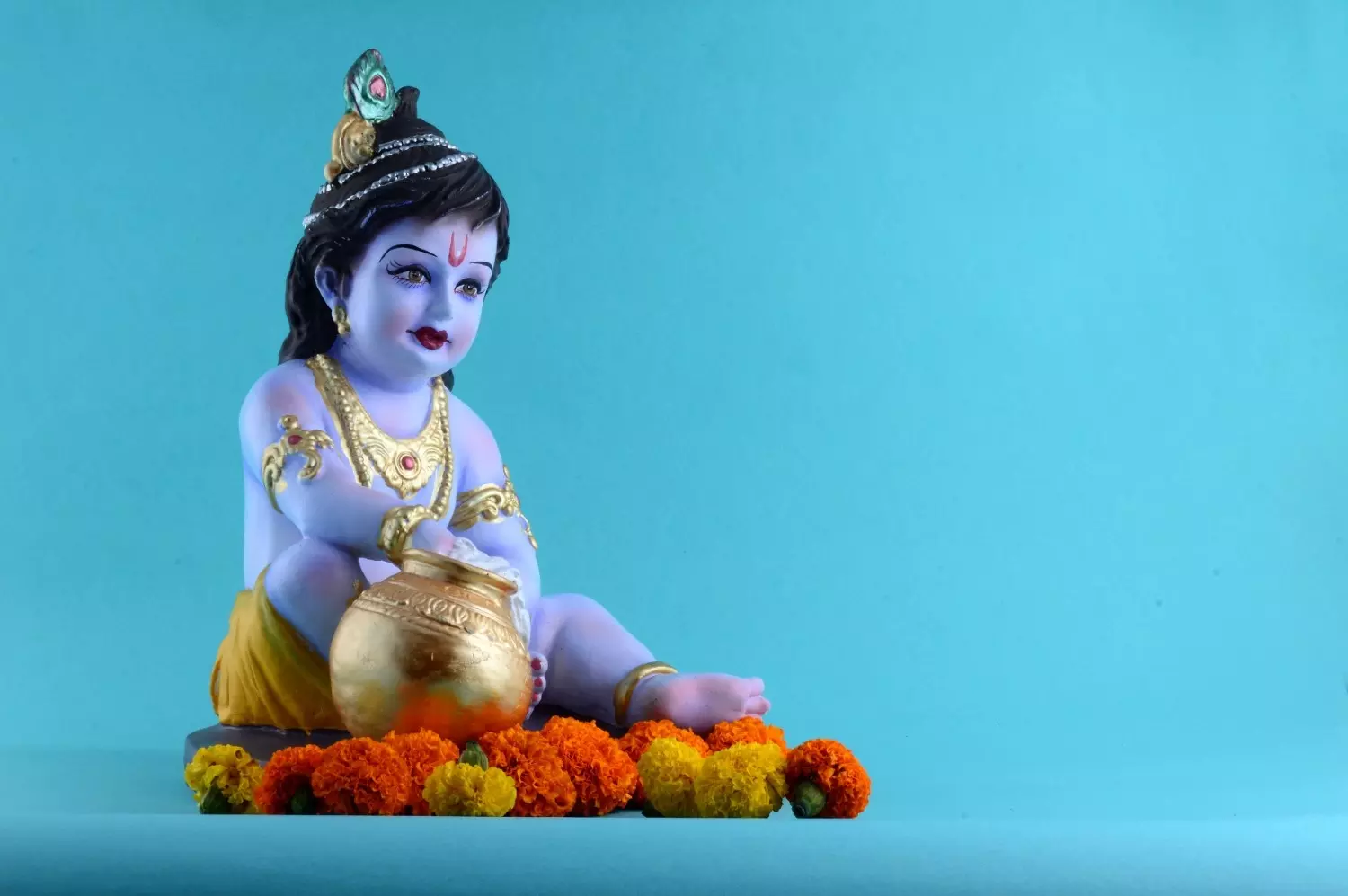
Janmashtami celebrations begin as devotees celebrate Lord Krishna's birth
This year, Janmashtami will be observed across two days, August 15 and 16, as the lunar Ashtami tithi overlaps

The sacred Hindu festival of Janmashtami, also known as Krishna Janmashtami, commemorates the birth of Lord Krishna, the eighth avatar of Lord Vishnu.
This year, Janmashtami will be observed across two days, August 15 and 16, as the lunar Ashtami tithi overlaps.
Also Read: ‘Taler bora’: A Janmashtami speciality from Bengal, with a Sri Lankan twin
Legends of Krishna's childhood
Janmashtami commemorates the birth of Lord Krishna in Mathura, where he was born as the eighth son of Devaki and Vasudev.
Fearing the tyranny of King Kamsa, Devaki’s brother, the infant Krishna was secretly carried to Vrindavan.
There, his childhood blossomed into eternal legends, playful leelas with the gopis, enchanting melodies on the flute, and his timeless bond with Radha.
This divine association makes Mathura and Vrindavan the spiritual heart of Janmashtami celebrations.
Janmashtami celebrations
While celebrations will take place on both days, the midnight birth ritual remains the heart of the festival.
On this divine night, the streets of Vrindavan and Mathura come alive with floral decorations, temples glittering with lights, and chants of “Hare Krishna” echoing until dawn.
Devotees mark the occasion with fasting, devotional singing, and midnight rituals honouring Krishna’s birth. Temples in Mathura, Vrindavan, and ISKCON centres worldwide are adorned with flowers and lights.
Traditional ceremonies such as the abhishek of Krishna idols with milk, curd, honey, and ghee are performed, followed by offerings of makhan-mishri, kheer, and other delicacies.
Also Read: ‘Batenge to katenge’: UP CM’s message of ‘unity’ on Janmashtami citing Bangladesh
Greet with quotes from Gita
Among Hindu scriptures, the Shrimad Bhagavad Gita holds a place of profound reverence. This Janmashtami offers an occasion to share greetings, thoughtful wishes, and inspiring quotes that capture the essence of Krishna’s life and teachings.
Embedded within the Mahabharata, the Gita is a divine dialogue between Lord Krishna and the warrior prince Arjuna. Its 700 verses delve into life’s meaning, the eternal nature of the soul, the role of karma (action), and the path to righteousness.
For centuries, Krishna’s words in the Gita have guided devotees, offering clarity in moments of doubt and strength in times of struggle.

